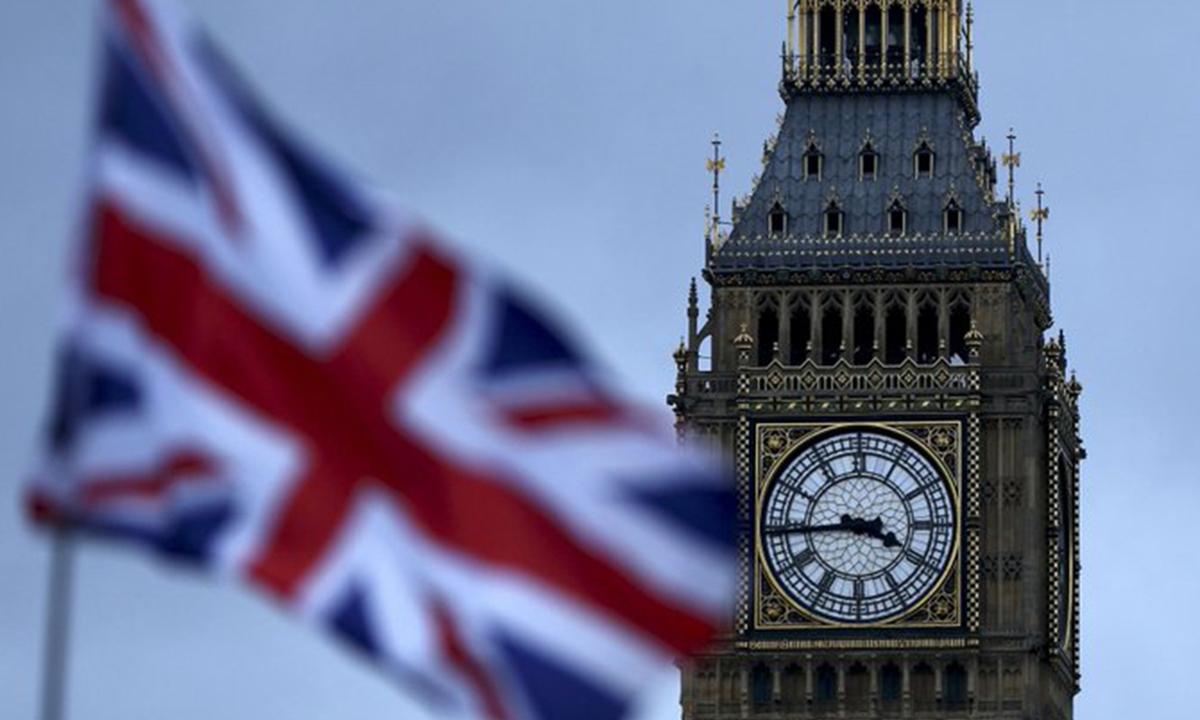
Photo: Xinhua
Editor's Note:In the post-Brexit era, Britain's relationship with the US has become "less a partnership and more a prison," wrote Philip Stephens, associate editor of the Financial Times in a piece titled, "The UK is both partner and prisoner in the US special relationship."Will US allies continue the uneven relations? How much can US President Joe Biden actually do to fix US relations with its allies? Two Chinese experts shared their views with the Global Times on these issues.
Shen Yi, professor at the School of International Relations and Public Affairs of Fudan University
Referring to a "prisoner" to portray the UK's relations with the US makes sense, to some extent. Britain is declining. Its disposable resources and room to adopt an independent policy are shrinking. Before Brexit, Britain could count on both the US and the EU to prove its presence and influence on many global issues, and gain more bargaining chips to deal with both sides. As it has exited from the EU, Britain has to rely more on the US to realize its role to play on the international stage. The reference "prisoner" means that London has been restrained with its special relationship with Washington.
Almost all US allies see such unevenness in their ties with the US. In fact, the alliance has been established mainly on calculations of interests. As long as these countries can benefit from their alliance with the US, they do not care too much about their position in the alliance. But their close ties were undermined during the Trump administration, which cranked up the "America First" policy.
Although Biden has pledged to repair alliances, what he has done so far is nothing but lip service. He has not made any substantial efforts to mend the frayed ties.
Remarkable changes have taken place since the Cold War. US allies will not blindly follow the US' lead at all costs. At present, with China's rise and its willingness to assume more international responsibility, these allies have set high expectations for China to provide solutions for many global issues, and offer them more economic gains. Against this background, these countries cannot blindly follow the US' lead to counter China.
Nevertheless, the US has maintained its alliance for over seven decades, and its allies still hope to seek benefits from it. Therefore, these countries will not discard their alliance with the US, but such a relationship has weakened.
Yuan Zheng, deputy director and senior fellow of the Institute of American Studies, Chinese Academy of Social Sciences
The US-UK relationship is nothing close to a "prison."
Due to historical reasons, the US has a relationship with the UK that is more special than with Australia or Canada. As times change, Britain can no longer be on an equal footing with the US. After WWII, the unbalanced pattern in which the US dominates and the UK follows has remained intact till today. After Brexit, London seems to have become more dependent on Washington, and thus will get closer to the latter.
The US under Trump's presidency witnessed serious hits to its alliance system. This saw many US allies become dissatisfied. Except for the UK, Australia, and Canada, other US allies have become more independent. Meanwhile, Washington has refused to assume more international responsibilities and security obligations. Most US allies wouldn't stand at the frontline against China if they had other options.
Allies' dependence on the US is declining. But mainstream voices in the US strategic circle believe the alliance system is still a pivot point that can maintain the country's hegemony - and therefore a vital role in international affairs.
The Biden administration has emphasized coordination with allies. Many European leaders have shown great expectations for the US in this new era. Although they know the US won't support them as in the past, they look forward to an enhanced trans-Atlantic relationship.
The Biden administration will try to fix the cracks in the trans-Atlantic alliance left by Trump. For example, Biden is actively pushing forward efforts to tackle climate change not only because it is a legacy of the former Democratic Obama administration, but also because Europe attaches importance to the issue.
If Biden can strengthen talks with European countries on multilateral issues in a less aggressive attitude, Europeans will probably improve their ties with Americans. But it is still hard for the two sides to go back to the good old times. Both will reshape their relationships based on their own needs brought about by the new situation.
